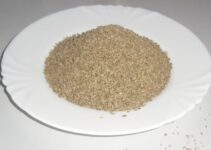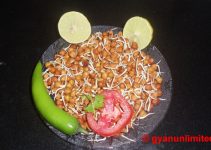Acidity, hyperacidity, ulcers, acid reflux, and GERD are not simple problems of the stomach. They are the products of unhealthy food habits such as spicy food items, excessive alcoholic beverages, and fermented, spicy, and fatty foods. Anxiety, stress, and tensions are some of the reasons for stomach acidity. Here are the natural ways to cure acidity and gastric acid.
Yoga poses for acidity and hyperacidity
Yoga has the power to control and cure stomach acidity. The different forms of Yoga relieve acidity, hyperacidity, gas problems, indigestion, etc. If a person is suffering from chronic acidity and hyperacidity, he must do Kunjal (Shatkarm) under the guidance of an expert. Kunjal, or the stomach washing is an effective way to get rid of excess gastric acidity. Asanas such as Vajrasana(Throne Pose), Ardha matsyendrasana (the Half Spinal twist Pose), Sarvangasana (the Shoulder Stand Pose), Paschimottanasana (Head to knee), and Bhujangasana (The Cobra Pose) are some of the best Yoga postures for the treatment of acidity.
Home remedies to cure acidity
- Drink more and more water, especially take a glass of lukewarm water every day in the morning. It is one of the easy Home Remedies to beat acidity.
- Coconut water is an effective means of acidity and soothes your digestive system.
- For instant relief from acidity, one should use Jaggery, lemon, banana, and yogurt.
- Chewing of holy basil leaves is great for curing acidity.
- Use of honey, cider vinegar, and water before meals fights acidity.
- The mix of amla and honey is also an effective way to cure acidity.
- Banana, and cucumber aid your digestion and good for curing acidity. So, use it in your diet.
- Ginger helps in digestion. So one should use ginger in one’s recipes.
- Vegetables such as drumsticks, beans, pumpkin and carrot give you relief from acidity.
- Chewing fennel seeds after a meal is greatly balance acidity by producing alkaline saliva. It soothes the entire digestive system.
How to Lower Excess Stomach Acid
Excess stomach acid can cause discomfort and lead to various digestive issues, such as heartburn, acid reflux, and gastritis. If you’re looking to lower excess stomach acid, here are some steps you can take:
Dietary Changes
Avoid Trigger Foods: Certain foods and beverages can trigger excess stomach acid production, including spicy foods, citrus fruits, tomatoes, caffeine, and alcohol. Limit or avoid these items.
Smaller, Frequent Meals: Eating smaller, more frequent meals can help prevent overproduction of stomach acid.
Fiber-Rich Foods: Incorporate high-fiber foods like whole grains, fruits, and vegetables into your diet to help regulate stomach acid and promote digestion.
Lifestyle Adjustments
Maintain a Healthy Weight: Excess weight can put pressure on your stomach and lead to acid reflux. Maintain a healthy weight through a balanced diet and regular exercise.
Avoid Overeating
Eating large meals can cause your stomach to produce more acid. Try to eat smaller portions and avoid late-night snacking.
Meal Timing
Avoid eating right before bedtime, as lying down can make it easier for stomach acid to flow back into the esophagus.
Hydration
Drink Water: Staying hydrated helps maintain the mucosal lining in your stomach, which can protect against excess acid production.
Stress Management
Stress can increase stomach acid production. Practice stress-reduction techniques such as meditation, deep breathing, yoga, or mindfulness to help manage stress.
Avoid Smoking
Smoking can irritate the stomach lining and increase acid production. Quitting smoking can improve your overall digestive health.
Elevate the Head of Your Bed
If you experience nighttime acid reflux, elevate the head of your bed by about 6-8 inches. This can help prevent stomach acid from flowing into your esophagus while you sleep.
Antacids
Over-the-counter antacids can provide temporary relief from heartburn and acid reflux symptoms. However, they are not a long-term solution and should be used as directed.
Medications
If lifestyle changes and antacids are not effective, consult a healthcare professional. They may recommend prescription medications such as proton pump inhibitors (PPIs) or H2 blockers to reduce stomach acid production. These medications should be used under medical supervision.
Avoid Tight Clothing
Tight belts and clothing can put pressure on the abdomen, leading to increased stomach acid reflux. Wear comfortable, loose-fitting clothing.
Identify and Manage Food Sensitivities
Some individuals may have specific food sensitivities that can trigger excess stomach acid. Keep a food diary to identify potential triggers and consider eliminating them from your diet.




